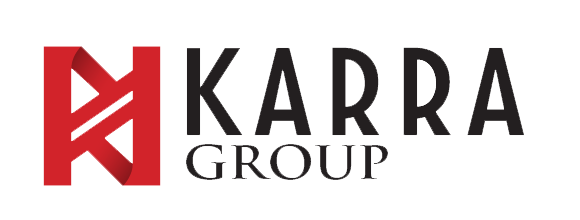- Forward Trajectory: Significant Policy Reforms Fuel Optimism and Deliver Compelling Nigeria news for Investors.
- Fiscal Responsibility and Economic Diversification
- Investment Climate Enhancements
- Specific Regulatory Reforms
- Power Sector Revitalization and Infrastructure Development
- Financial Sector Stability and Inclusion
- FinTech Revolution and Digital Banking
- Sustainable Development and Social Inclusion
Forward Trajectory: Significant Policy Reforms Fuel Optimism and Deliver Compelling Nigeria news for Investors.
Nigeria stands at a pivotal moment, witnessing a surge of optimism fueled by substantial policy reforms. Recent changes are creating a more attractive environment for investment, generating positive newsand sparking renewed interest from international stakeholders. The nation’s news economic trajectory is being reshaped by ambitious initiatives, positioning it as a key player in the African market and beyond. This evolving landscape presents both opportunities and challenges, demanding a comprehensive understanding of the factors driving this transformation. The potential for growth is substantial, bolstered by a young and dynamic population and a wealth of natural resources.
Fiscal Responsibility and Economic Diversification
A cornerstone of Nigeria’s recent progress is the commitment to fiscal responsibility. The government has implemented measures aimed at reducing debt, increasing revenue generation, and improving transparency in public finances. This disciplined approach is instilling confidence in investors, signaling a shift towards sustainable economic management. Furthermore, diversification away from oil dependence remains a central priority, with significant investments being directed towards agriculture, manufacturing, and technology sectors. These strategic shifts are intended to create a more resilient and inclusive economy.
Diversification is not merely about reducing reliance on a single commodity; it’s about fostering innovation and creating new economic opportunities. The government is actively promoting entrepreneurship and providing support for small and medium-sized enterprises (SMEs), recognizing their vital role in job creation and economic growth. Incentives are being offered to attract foreign direct investment in key sectors, driving technological advancement and knowledge transfer.
The impact of these policies is starting to become evident, with indicators pointing towards a gradual but steady improvement in economic performance. While challenges remain, the direction is undeniably positive. Ongoing investments in infrastructure — including roads, railways, and power generation — are crucial for supporting economic activities and facilitating trade.
| Agriculture | 3.5% | 4.1% |
| Manufacturing | 2.8% | 3.5% |
| Services | 4.2% | 4.8% |
| Oil & Gas | -18.1% | 2.2% |
Investment Climate Enhancements
Nigeria has been actively working to improve its investment climate, addressing long-standing concerns about bureaucratic hurdles and regulatory complexities. Significant strides have been made in streamlining business registration processes, reducing the cost of doing business, and enhancing contract enforcement. These reforms are designed to attract both domestic and foreign investment.
The establishment of investment promotion agencies and the implementation of investor-friendly policies are yielding positive results. Investors are increasingly recognizing Nigeria’s potential, with a growing number of companies exploring opportunities in various sectors. The government’s commitment to protecting investor rights and fostering a transparent business environment is also playing a key role.
This improved attractiveness is reflected in rising foreign direct investment inflows, which are vital for supporting economic development and creating employment opportunities. The government is actively engaging with international partners to promote Nigeria as a preferred investment destination.
Specific Regulatory Reforms
Several specific regulatory reforms have been instrumental in enhancing the investment climate. These include the passage of the Companies and Allied Matters Act (CAMA) 2020, which modernized company law and simplified business regulations. The government has also implemented measures to improve customs procedures, reduce port congestion, and enhance trade facilitation. These reforms have contributed to a more efficient and predictable business environment, encouraging investment and promoting economic growth. The ongoing digitalization of government services is further streamlining processes and reducing opportunities for corruption. These initiatives collectively highlight Nigeria’s dedication to becoming a more competitive and attractive destination for investment.
The focus on transparency and accountability is also evident in efforts to strengthen anti-corruption institutions and enforce the rule of law. This commitment to good governance is essential for attracting long-term investment and fostering sustainable economic development. The government is actively working to address issues related to infrastructure deficits and security concerns, recognizing that these factors are critical for attracting and retaining investors.
Furthermore, the government has been actively engaging with the private sector to identify and address challenges to investment and growth. Regular consultations with business leaders and industry stakeholders are helping to ensure that policies are aligned with the needs of the private sector. This collaborative approach is fostering a more conducive environment for investment and innovation.
Power Sector Revitalization and Infrastructure Development
Recognizing that reliable power supply is essential for economic growth, the government is undertaking significant efforts to revitalize the power sector. Investments are being made to upgrade transmission and distribution infrastructure, increase generation capacity, and promote renewable energy sources. Addressing the challenges in the power sector is crucial for attracting manufacturing investment and driving industrialization.
Alongside power sector reforms, Nigeria is also prioritizing infrastructure development across various sectors. New roads, railways, and ports are being constructed to improve connectivity, reduce transportation costs, and facilitate trade. These infrastructure projects are creating employment opportunities and stimulating economic activity. Investments in information and communication technology (ICT) infrastructure are also expanding access to digital services and fostering innovation.
The ambitious infrastructure development agenda is being financed through a combination of public funds, private investment, and concessional loans from international development partners. The government is actively seeking to attract private sector participation in infrastructure projects, offering attractive incentives and guarantees.
- Improved Electricity Access: Expanding grid connectivity to underserved communities.
- Enhanced Transportation Network: Constructing new roads and railways to improve connectivity.
- Modernized Port Facilities: Increasing port capacity and efficiency to facilitate trade.
- Increased ICT Infrastructure: Expanding access to internet and mobile services.
- Sustainable Energy Solutions: Investing in renewable energy projects.
Financial Sector Stability and Inclusion
Maintaining financial sector stability is a key priority for the Nigerian government. The Central Bank of Nigeria (CBN) has implemented measures to strengthen banking supervision, enhance risk management practices, and promote financial inclusion. A stable and robust financial sector is essential for supporting economic growth and attracting investment.
Efforts are being made to expand access to financial services for underserved populations, including small businesses and rural communities. The government is promoting microfinance institutions and mobile banking solutions to reach those excluded from the formal financial system. This expands the economic participation of citizens.
Moreover, initiatives aimed at combating financial crime and money laundering are strengthening the integrity of the financial system and enhancing investor confidence. A transparent and well-regulated financial sector is crucial for attracting foreign investment and fostering sustainable economic development.
FinTech Revolution and Digital Banking
Nigeria is witnessing a revolution in financial technology (FinTech), with a surge in innovative digital banking solutions. Mobile payment platforms, digital lending apps, and peer-to-peer lending services are transforming the financial landscape, particularly for those previously excluded from traditional banking services. This FinTech boom is driving financial inclusion, promoting entrepreneurship, and fostering economic growth. The regulatory framework is evolving to accommodate these new technologies, while ensuring consumer protection and financial stability. Opportunities are vast and growing daily, attracting significant investment, and transforming lives.
The growth of FinTech is also creating new jobs and attracting skilled talent, contributing to the development of a vibrant digital economy. Start-ups are leveraging technology to address financial challenges and create innovative solutions for consumers and businesses. The government is actively supporting the FinTech ecosystem through regulatory reforms, investment incentives, and capacity-building programs.
However, challenges remain, including concerns about cybersecurity risks, data privacy, and the need for clear regulatory frameworks. The government is working to address these challenges while fostering an environment that encourages innovation and responsible financial practices.
Sustainable Development and Social Inclusion
Nigeria is committed to achieving sustainable development goals, addressing social and environmental challenges alongside economic growth. Investments are being made in education, healthcare, and social safety nets to improve human capital and reduce inequality. A skilled and healthy workforce is essential for driving long-term economic prosperity.
The government is also prioritizing environmental sustainability, promoting responsible resource management, and combating climate change. Initiatives are being implemented to protect biodiversity, reduce pollution, and promote renewable energy sources. These efforts are crucial for ensuring a sustainable future for Nigeria.
Promoting social inclusion, particularly for women and marginalized communities, is also a key priority. The government is implementing policies to empower women, increase access to education and employment opportunities, and reduce gender inequality.
- Invest in human capital development through education and healthcare.
- Promote environmental sustainability through responsible resource management.
- Foster social inclusion and empower marginalized communities.
- Strengthen governance and combat corruption.
- Encourage private sector participation in sustainable development initiatives.
| Poverty Rate | 40.1% | 38.9% |
| Literacy Rate | 62.0% | 65.1% |
| Life Expectancy | 55.2 years | 55.7 years |
Nigeria’s recent policy reforms and commitment to economic diversification are paving the way for a more prosperous future. While challenges undoubtedly persist, the positive trajectory is undeniable. Continued investment in infrastructure, coupled with a stable financial system and a focus on sustainable development, will unlock Nigeria’s full potential. The ongoing improvements in the business environment and the growing engagement with the international community demonstrate a renewed determination to attract investment and drive growth. The nation is actively reshaping its economic narrative, securing its place as a significant force within the African continent and on the global stage.

